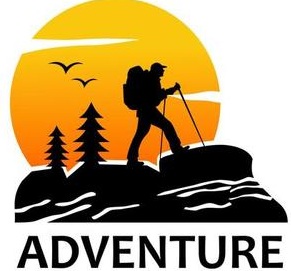What could be better than escaping from your daily life for a few days of camping or for a temporary bivouac to fully enjoy the riches of nature?
Accessible to all and inexpensive, this outdoor activity does not require much preparation in advance, but good organization and the acquisition of the appropriate equipment will allow you to spend quality time.
Indeed, to avoid unpleasant surprises, you will need a little more than a simple sleeping bag and a tent canvas. So let’s take stock of the complete equipment of the perfect camper.
How to choose the right destination?
Before focusing on the tools, let’s take a moment to look at the location of your future stay. This fact depends a lot on your character.
If you like the idea of sleeping under the stars but your comfort remains important, choose official campsites to benefit from permanent surveillance and all the basic amenities.
The only small drawback of this option is the price. It’s up to you to see the budget you are prepared to devote to your stay and the various services you wish to have available.
A brief prospecting on the internet will help you select the ideal structure. Photos of the frame or comments left by customers will be an excellent basis for moving your thinking forward.
Bivouac and wild camping
Conversely, if the idea of sleeping in a protected environment does not appeal to you at all because your adventurous soul pushes you to head far from the beaten track, bivouac and wild camping will suit you much better.
What is the difference between these two concepts?
They are actually very close. Both involve setting up camp in the wilderness outside of areas dedicated to this activity, but bivouac is generally only practiced for one night while wild camping is supposed to last over several days.
On the other hand, the concept of bivouac refers to walkers stopping in a nice place discovered on their way while wild camping is more organized and often includes the use of a vehicle to go to a specific place decided to advance.
on the legal level
On a legal level, the situation in France is quite clear.
It is possible to set up camp anywhere, except in places where it is strictly prohibited. This category includes in particular private properties, protected natural areas, the surroundings of historic sites and access to drinking water sources, the seaside as well as public roads or paths. In general, signs are present to inform you that it is impossible to camp.
Also note that bivouac for a single night is much more tolerated than wild camping which lasts a little too long. So, don’t hesitate to take advantage of this regulatory flexibility to treat yourself to nights in exceptional places without having to pay a single cent.
BUT THEN, CAMPING OR BIVOUAC?
To best comply with the regulations presented above, it is important to consider bivouac as a resolutely nomadic practice.
Bivouac or wild camping
It goes without saying that settling in a lush forest or at the edge of a pretty stream for too long can disturb any local residents as well as walkers looking for peace and quiet. In any case, when opting for this type of free accommodation, you should be discreet and not leave any waste behind. Once you have mastered these few rules, bivouac in an isolated area far from everything, during a trip or a long hike, is a truly memorable experience.
On the other hand, many of us remember those sun-drenched summers spent by the swimming pool at a family campsite. The conviviality, the activities offered for children, all this very special atmosphere which is the charm of these gathering places are elements to take into account when making your choice. What is certain is that whatever solution you adopt, a getaway to the great outdoors will only do you good.
Basic equipment for beginner campers
Now that we have reviewed the different places where it is possible to set up for camping, let’s get to the heart of the matter and talk about the essential equipment to best succeed in this activity. Let’s start with the most essential tool of all: the tent .
The different types of tents
Unless you plan to sleep under the stars and you don’t mind the rain, having a good quality tent guarantees you a pleasant sleep free from any annoyance.
If you can, don’t hesitate to pay the price and invest in a recognized brand . Then, the type of tent that suits you best will depend on your use .
For classic use within a campsite , plan large. Indeed, during an extended stay, you will need space in the apse to store your bag and all your small belongings. With this in mind, if you plan to sleep for two, get a tent designed for three, in order to be truly comfortable.
The only disadvantage of owning a somewhat large tent is its weight, which is necessarily greater, but this fact will not pose a problem for you since you will stay in the same location throughout your vacation without having to move.
Beyond these considerations about volume, there are three main shapes from which you will have to decide: the igloo , the tunnel or the teepee .
The igloo has a smaller structure and is therefore the easiest variant to assemble. This form is generally self-supporting, meaning it stands up on its own without having to be planted in the ground using pegs.

